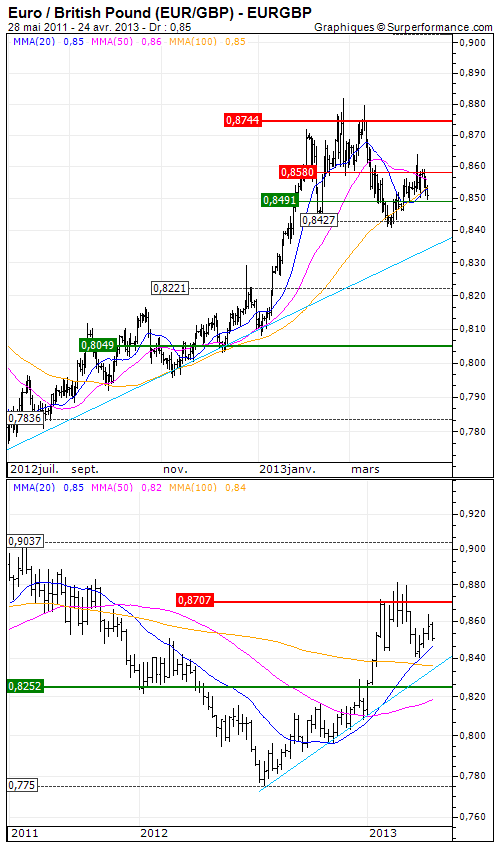Euro / British Pound (EUR/GBP) : Fitch deprives the United Kingdom of its triple A
By Camille Chretien
The last minutes of the British institution certainly did not bring any new elements whereas a minority of three members continues to ask for an increase in the assets purchase program. However, the upcoming arrival of the new governor, Mark Carney, on 1 July, could put an end to this wait-and-see period, motivated by the high level of inflation (2,8%), and cause a new series of measures aiming to support the economy as a whole, the consumption in particular.
Indeed, it is clear that macroeconomics is like the Britain’s climate where the unemployment rate rose to 7.9% and where retail sales decreased once again in March. After Moody’s, on 22 February, this is Fitch which downgrades London, lowering at the same its growth forecasts for the country (+0.8% in 2013 and 1.8% in 2014). Standard and Poor’s, the third major rating agency, had confirmed the best grade at the beginning of April, with a negative outlook and a one in three chance to proceed to a downgrade.
In the Eurozone, the situation is even doubly harmful for the British because the recession slows the orders from the main trade partner of the United Kingdom whereas the monetary policy of the ECB, less accommodative, allow the Euro to keep its strength on markets.
Graphically, the EUR/GBP is logically moving up on all time scales, and we take advantage from the support of the 20-day moving average to take a long position, anticipating an upcoming breakout of the 0.8580 resistance and an acceleration towards annual highs around GBP 0.88.



